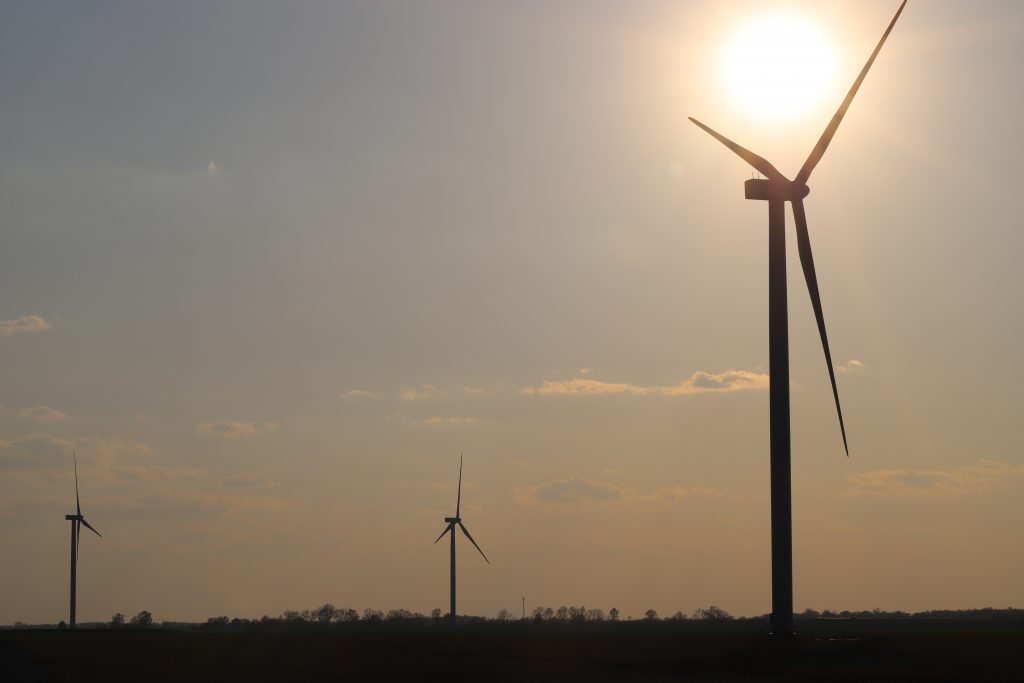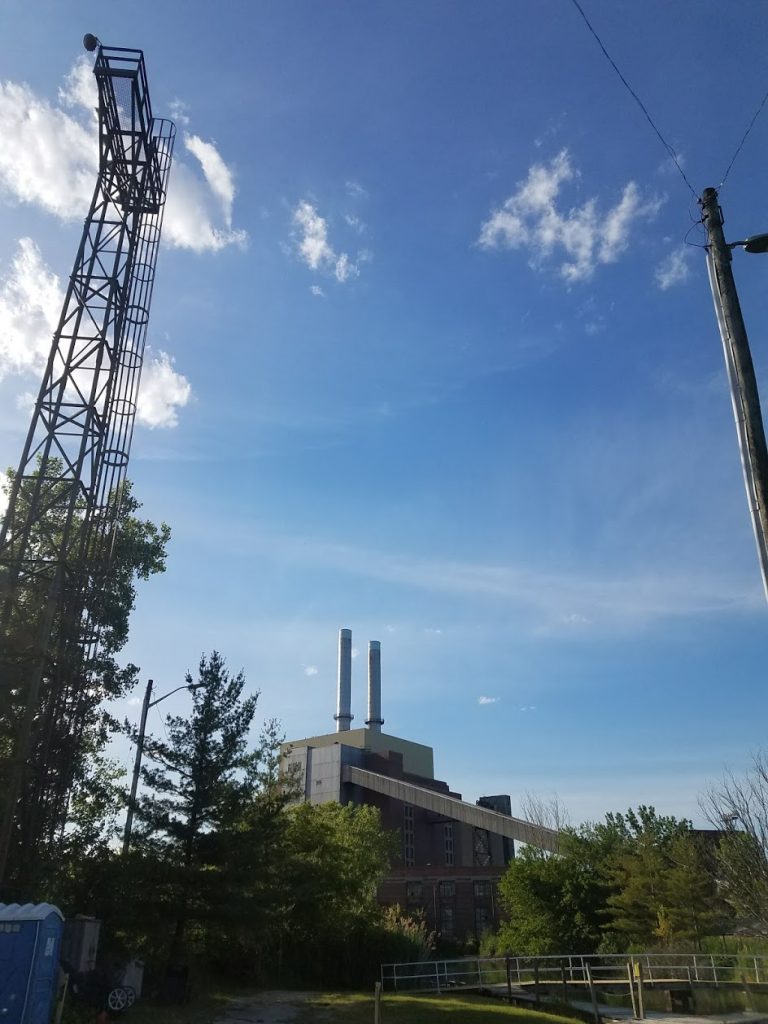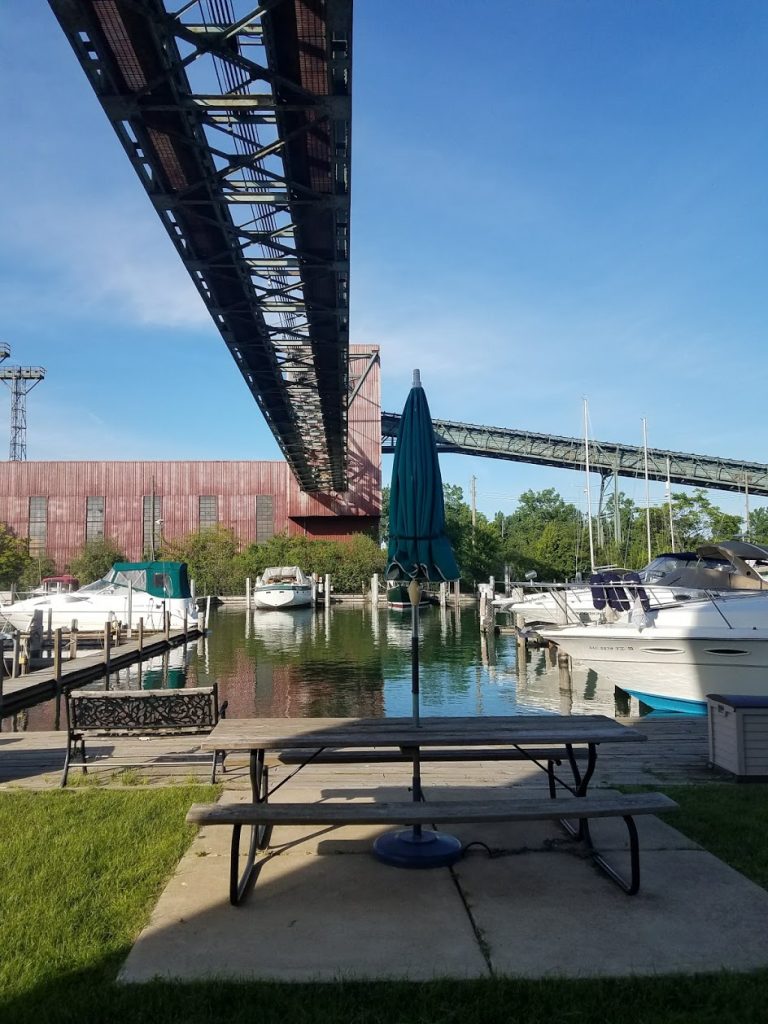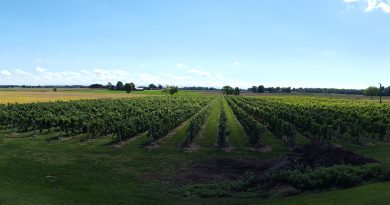In Pursuit of Exelonce, Perhaps To Exel-Twice
Happy Memorial Day, folks. I’m returning from a couple of weeks of Less Content for a few reasons.
Last week, I started a new position with The Potomac Electric Power Company, a.k.a. Pepco, an Exelon Company. (Not to be confused with The Potomac Edison Company, which also operates in Maryland. Because they’re part of FirstEnergy and why do all utility companies have the same name that involve Edison something? Poor Nikola Tesla, am I right? ). Anyway, I’ll be working remotely for the near future (TBD, read below), based in Detroit. I will be working on implementation and policy around demand response and energy efficiency across several territories in my native Midatlantic.
With the advent of affordable renewables, sophisticated analytics, machine learning, and AI, affordable battery storage, and a nationally-renewed interest in infrastructure development, it is probably the first time since the advent of the Atomic Age that it has actually been a pretty exciting time to be in the utilities and energy space.
You may have questions! I may have answers!

Q1. Exelont Job, Nat! Wait. Who’s Exelon?
I’m glad you asked. Exelon is a Fortune 100 energy company and holding company for utilities and power generation resources. The company was formed in 2000 by a merger of Philly-based PECO and Unicom (a.k.a. ComEd or The Commonwealth Edison) in Chicago. (Is this why the PJM power grid is basically electrical gerrymandered to include Chicagoland? I’m not really sure). In our case, Exelon functions sort of as a holding company for a bunch of subsidiaries, providing the sort of corporate backbone, kind of like an ASO, and then we do our own thing on the individual utility side.
If I’m speaking about “us” as a company, well, I suppose we do many things, I just have nothing to do with many of them. Thankfully, since I am woefully underqualified to manage a nuclear power plant (although I have read most of the Wikipedia pages on nuclear power and nuclear accident. And we are very big on safety! Remember that Three Mile Island thing? Yeah, that wasn’t us, that was the other guys). Onto what I am doing, though.
Q2. What Are Energy Efficiency and Demand Response?
You’ve no doubt heard of energy efficiency. In Michigan, where I participate in a number of workgroups, the term was rebranded as “energy waste reduction” by One Tough Nerd who cleverly noted that it’d be really hard for the troglodytic legislature of Michigan to say “no” to something called “waste reduction.” E.E. more or less refers to any activity that generates the same or more productivity for less energy input or less energy lost or wasted. At the biggest picture level of utility infrastructure planning, the idea of retiring aging coal power plants was, at the most basic level, nearly quite literally the napkin math of figuring out how many incandescent lightbulbs you’d need to replace with LED’s to equate to a single coal plant.
Remember DTE’s IRP thing? Yeah, so, it turns out that utilities really like to buy, build, and maintain their own stuff. It allows for a lot more predictability in financing and budgeting than, say, financing every Tom, Dick, and Ahmed to buy and maintain their own solar panels. This is changing slowly with the advent of broadly-developed distributed energy resources, or DER’s, so, not just installing solar panels, but also installing battery storage, utility-scale battery storage, utility-scale solar, and Ever So Much More. The times, they are a-changin’, and utilities must change with them.
As we have already replaced most of the lightbulbs and certain factors like luminous efficacy (efficiency of the lightbulb) are barely improving these days, we now have to get cleverer about how to conserve energy. Decarbonizing the grid is not just about installing more solar panels. It’s about reducing how much energy we use, and how much gets wasted.
Q3. So, how does this play out for the average customer?
A large portion of this takes place in the home or business. Energy efficiency is about taking an inefficient air conditioner and replacing it with a more efficient one. It’s quite possible that, for example, upgrading your air conditioner could cut your bill in half. No, the EPA isn’t coming for your air conditioner, nor is your utility– we just want to save you money and save our grid from strain in increasingly unpredictable, increasingly extreme weather. In the ideal scenario, the utility can help you finance that improvement, help you spend only half as much on operating the appliance, and still make a return on the utility’s investment. Building envelope retrofits are more invasive and complicated, but also a valuable solution.
Outside the walls of the individual home or business, some of this realm involves looking at improving the efficiency of electrical transmission (I am involved in discussions about this but I don’t have direct technical involvement in it). And some of it indeed happens at the power plant itself (this is well outside the scope of my work).
Q4. Ok, how about Demand Response?
While EE is concerned with reducing how much energy is used for a process, demand response is a combination of things that involve how the utility manages instances of increased demand. While the historical approach has been to increase power supply to match power demand, there are novel ways of addressing this issue that can save money for customers and for the utility. Increasing supply is also sometimes not an option, as we saw in Texas in the storms earlier this year. Normalizing the supply and demand curves in utilities is, as with many other industries, kind of a holy grail. It’s just all kinds of complicated.
Complicated though electrical grids are, DR is an increasingly exciting space, as we can use a balance of things including understanding and influencing customer behavior (education, information), adjusting the local power supply as needed, or engaging novel methods for pricing and controlling local electrical loads.
Q5. What’s Next For Handbuilt?
So, I mentioned that I’m remote for now. Assuming they decide they like me, I’m eventually going to be relocating back to the Midatlantic (which I have all kinds of feelings about because of how hard I tried to get a job in Michigan and how much easier it was to get interviews in faraway lands). In the meantime, I’m going to keep writing. I’m also going to remain involved in the things I’m doing in the in Detroit community and beyond, though I’ll notably have a bit less time to do them, of course.
This means that, given that I already have a few hundo coming in every month from my loyal readers and ad revenue, I’m going to try and bring on regular external contributors to write when I can’t myself. I joked to my manager that I will not be sharing Exelon nuclear secrets. In other words, Handbuilt content is going to keep coming, it’s just going to look a bit different. I will probably be returning to my series on parking and land use. I’m going to continue to cover Midwestern goings-on for now, of course. I’m also looking forward to eventually producing some more East Coast content.

Keep Being Surprised.
A closing thought: In one of my first experiences with the new gig, I sat in on a meeting where the meeting chair started off by talking about how to honor or celebrate the upcoming weekend holiday. Memorial Day is one that, to be totally honest, I spend very little time thinking about, because of how much I associate it with flagwaving and how much I associate flagwaving with jingoism, etc. So, while I didn’t raise an eyebrow at this, I prepared to be skeptical, as my liberal arts education prepares me to always be skeptical. But he actually showed this video, which, per historian David Blight, traces the origins of arguably the first large-scale celebration of what we now think of as Memorial Day, to freed slaves in South Carolina after the Civil War.
I had never heard this story. It’s possible that this is an oversight by The Bureau of Mainstreamed White History that is pervasive in the American educational curriculum. You know, how the pilgrims came to Plymouth Rock and the Wampanoags invited them for a Thanksgiving dinner and they stayed up all night doing each other’s hair and watching reruns of Survivor: Christopher Columbus Edition, or whatever. But whatever the cause of why we do or don’t learn a specific thing, I enjoy any opportunity to learn stuff, to be surprised in the process, and to challenge my assumptions.
To put this in a broader perspective: Five years ago, I didn’t see myself ever working for a large corporation. Hell to the naw! I was dead-set on being a public servant. I was gonna go work for Mike Duggan, the hero of Detroit! We were going to forge a new future for the city! Resurget cineribus, MFers! So, yeah, we see how that went. Since my departure, my two program managers, two supervisors I worked under, and at least a few inspectors– have all left or been fired- and when I tell people where I worked in the city bureaucracy, they usually wince.
A Complicated Praxis.
But disirregardlessly, as Handbuilt star donor J.B. would say, my departure coincided with my starting an MBA program– that introduced me to a lot of new ideas that have, I’m glad to say, greatly informed what I hope is superior praxis as a city planner and as an energy professional. I didn’t come out of the MBA program with my spirit broken. Nor did I come out of it thinking– nor having been told- that neoliberal capitalism is perfect or virtuous. I wrote a 238-page graduate thesis on the question of public vs. private innovation around next generation transportation infrastructure.
Am I thoroughly ambivalent about liberal capitalism? Absolutely.
Do I think that most companies aren’t working hard enough to decarbonize the economy? Definitely.
Do I think we are indeed in pretty rough shape as far as this whole climate situation is concerned? For sure.
But I am excited to be working with Pepco– in an environment where I’m going to get to use a combination of my business education, my professional experience and training as a city planner, and my general affinity for communication and collaboration, to solve some of these problems. Returning to my first week meeting, the David Blight video provides a good backdrop to explain why I started Handbuilt in the first place: I was passionate about figuring out new ways to both independently and collaboratively simplify the framing of complex issues around economic and social justice. I recognized that narrative and information were just as important as parts of the puzzle as financial capital.
As we work to decarbonize the future, we can’t just be focused on technology or Elon Musk tweets. We have to focus critically on making sure the narratives around sustainability, justice, and diversity, equity, and inclusion, are all more than just gestural and vague. The narratives are important, because they define perception and information access. And from there we can get to the most fundamental issues of things like energy, capital, and what have you, and figure out how we’re going to solve this whole climate thing– for everyone.
Follow Nat on Twitter. Or, learn some more about the goings-on with Pepco. Or its parent company, Exelon.






